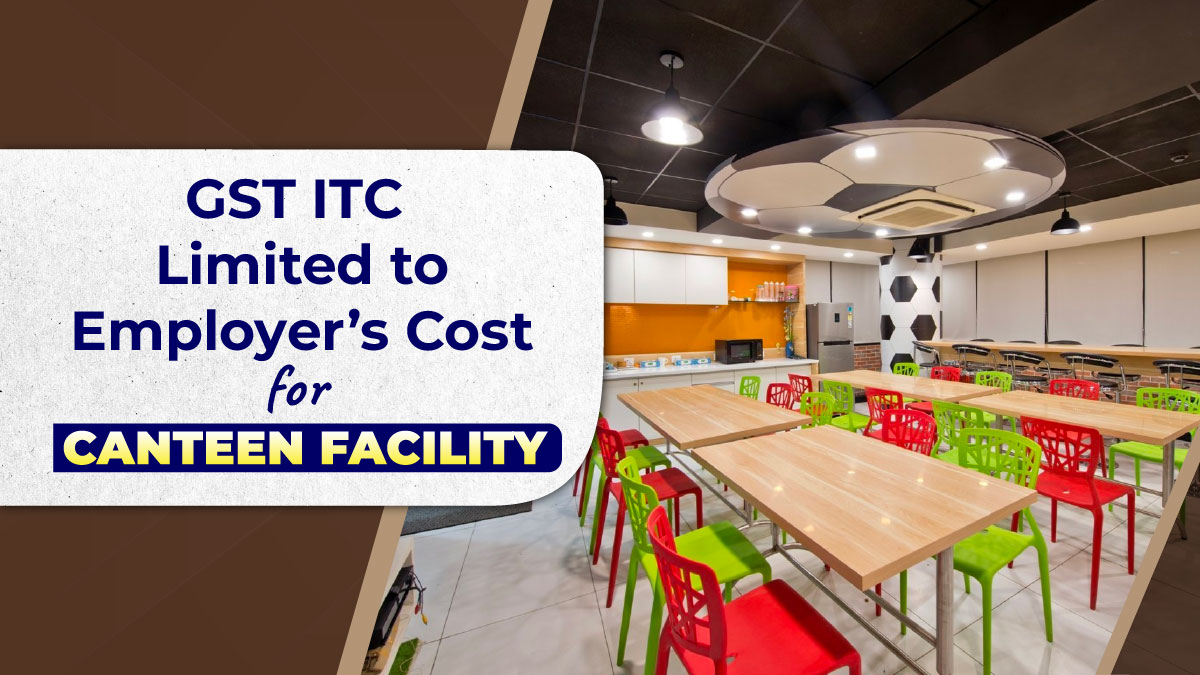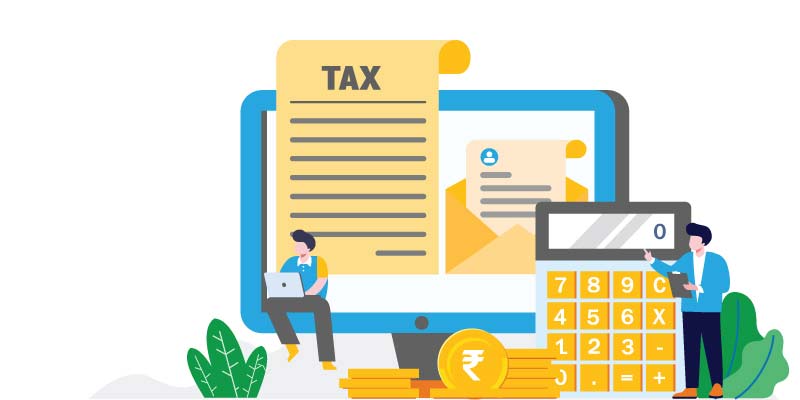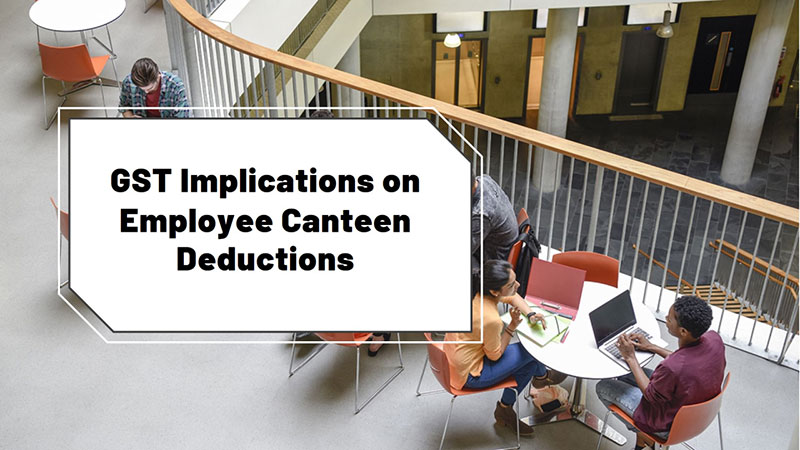
Introduction
Understanding the nuances of the Goods and Services Tax (GST) is crucial for businesses to optimize their tax liabilities. One significant aspect that businesses often overlook is the Input Tax Credit (ITC) and Indirect Taxation on food and beverages provided as a canteen facility. Given that providing canteen facilities is obligatory under the Factories Act, 1948, employers can avail of ITC on these expenses. However, when it comes to the provision of canteen facilities for employees, the rules around claiming ITC are not straightforward. The ITC on canteen services is limited to the cost borne by the employer. This blog delves into the intricacies of how GST ITC can be applied to the employer’s cost for canteen facilities, ensuring compliance and cost-efficiency.
What is Input Tax Credit (ITC)?
The Input Tax Credit (ITC) mechanism is a fundamental feature of GST, allowing businesses to reduce their tax liability by claiming credits for the GST paid on purchases used in their operations. This helps in minimizing the cascading effect of taxes, ultimately reducing the cost of goods and services. In the context of canteen facilities, employers can claim ITC for the GST paid on food and beverages, provided these services are mandatory under the Factories Act, 1948.
Legal Framework: Factories Act, 1948 and GST Provisions
The Factories Act, 1948 mandates certain facilities, including canteen services, for employees in factories. According to this act, any factory employing more than a specified number of workers must provide a canteen facility. The GST law, under section 17(5), generally blocks ITC on food and beverages. However, an exception is made if such supplies are obligatory under any law for the time being in force. This legal alignment enables employers to claim ITC on the GST paid for canteen services
The primary objective of this provision is to ensure that workers have access to nutritious and hygienic food during their working hours. This helps in improving productivity and maintaining the overall health of the workforce. The cost of running such canteens is borne by the employer, but the Act also allows for certain expenses to be recovered from the employees.

Four Conditions for Availing ITC on Canteen Facilities
To avail Input Tax Credit (ITC) on canteen facilities, it is crucial that the provision of such facilities is a statutory obligation. According to the Factories Act, 1948, factories employing more than 250 workers are required to provide and maintain a canteen. This legal requirement makes the expenses on canteen facilities eligible for ITC under the Goods and Services Tax (GST) regime.
Ensuring that the canteen facility is mandated by law is the first condition for claiming ITC. Employers need to maintain records proving the legal necessity of the canteen to substantiate their ITC claims during audits.
For employers to claim ITC on canteen facilities, certain conditions must be met:
1. Mandatory Provision: The canteen services must be mandatory under the Factories Act, 1948.
2. Documentation: Proper documentation is crucial for substantiating the ITC claims. Employers should maintain detailed records of all canteen-related expenses, including invoices and receipts showing GST paid.
3. Usage for Business Purposes: The canteen services should be used solely for the employees and not for any personal or unrelated business use.
4. Compliance: The employer must comply with all the GST filing requirements and ensure the accuracy of ITC claims.
Practical Implications for Businesses
Availing ITC on canteen facilities can have significant cost-saving implications for businesses. By leveraging this provision, employers can reduce their GST liability, thus lowering overall business expenses. This not only ensures compliance with statutory requirements but also promotes employee welfare by providing subsidized or free meals, which can enhance productivity and morale.

Common Challenges and Solutions
Despite the clear provisions, businesses may face challenges in claiming ITC on canteen facilities. three common issues include:
1. Misinterpretation of Laws: Misunderstanding the eligibility criteria for ITC can lead to incorrect claims.
2. Documentation Gaps: Inadequate documentation can result in disallowed ITC claims during audits.
3. Compliance Burden: Keeping up with the compliance requirements can be taxing for small and medium-sized businesses.
To mitigate these challenges, businesses should invest in robust accounting and compliance systems, seek professional advice when necessary, and ensure meticulous record-keeping.
Calculating ITC on Canteen Services
Calculating the eligible ITC on canteen services involves several steps. Employers must first determine the total cost incurred on providing the canteen facility, including the GST paid. From this, they can claim ITC only on the amount they have actually borne.
For example, if the employer charges a nominal fee to employees for canteen services, the ITC claim must exclude this amount. Only the employer’s net expenditure on the canteen, after deducting any employee contributions, is eligible for ITC.
Major Litigations on GST and Canteen Charges
The issue of GST on canteen charges and the eligibility of Input Tax Credit (ITC) for these services has been under intense scrutiny, leading to various interpretations by different authorities. Below is a compilation of significant litigations on this subject:
Confusion often arises regarding two critical issues:
- Should the company charge GST on amounts recovered from employees as canteen charges?
- Can the company claim Input Tax Credit (ITC) on GST charged by the caterer on catering services?
Let’s look into compiled advance rulings from ten various states to provide clarity:
1. FAIVELEY TRANSPORT RAIL TECHNOLOGIES INDIA PRIVATE LIMITED (Tamil Nadu, 20/12/2023)
- GST on Canteen Charges: GST is applicable on the amount charged to employees for canteen services.
- Input Tax Credit: ITC is allowed on supplies mandated by law.
2. SUZUKI MOTOR GUJARAT PVT LTD (Gujarat, 03/02/2024)
- GST on Canteen Charges: No GST on canteen charges as it’s considered a perquisite under a contractual agreement.
- Input Tax Credit: ITC is available for obligatory canteen services under the Factories Act, 1948, for permanent employees only.
3. TUBE INVESTMENT OF INDIA LIMITED (Uttarakhand, 22/12/2023)
- GST on Canteen Charges: Provision of food at a nominal cost is considered a ‘supply’ and is subject to GST.
- Input Tax Credit: ITC on GST charged by the caterer is available only for the cost borne by the employer.
4. KOHLER INDIA CORPORATION PVT LTD (Gujarat, 05/01/2024)
- GST on Canteen Charges: No GST on canteen charges under a contractual agreement.
- Input Tax Credit: ITC is available for obligatory canteen services, limited to the cost borne by the employer.
5. SUNDARAM CLAYTON LIMITED (Tamil Nadu, 05/09/2023)
- GST on Canteen Charges: GST is applicable on the nominal amount recovered from employees.
- Input Tax Credit: ITC is available only for the cost borne by the employer.
6. KIRBY BUILDING SYSTEMS & STRUCTURES INDIA PRIVATE LIMITED (Telangana, 15/11/2023)
- GST on Canteen Charges: Exempt from GST if recorded as costs borne by the employer.
- Input Tax Credit: Eligible for ITC as per Section 17(5)(b) of the CGST Act.
7. M/S EIMCO ELECON INDIA LIMITED (Gujarat, 24/08/2023)
- GST on Canteen Charges: No GST on subsidized amounts deducted from employees.
- Input Tax Credit: ITC available for full-time employees, not for contractual workers.
8. KSH AUTOMOTIVE PVT LTD (Andhra Pradesh, 29/05/2023)
- GST on Canteen Charges: No specific ruling on GST applicability.
- Input Tax Credit: Proportionate ITC available for permanent employees.
9. TATA AUTOCOMP SYSTEMS LTD (Gujarat, 19/06/2023)
- GST on Canteen Charges: No GST on amounts deducted from employees’ salaries.
- Input Tax Credit: ITC available to the extent of cost borne by the employer, not for contract employees.
10. SHRIRAM PISTONS AND RINGS LIMITED (Uttar Pradesh, 05/12/2022)
- GST on Canteen Charges: Not liable for GST on amounts deducted from employees.
- Input Tax Credit: ITC on GST paid for canteen facilities is admissible under Section 17(5)(b) of CGST Act.
By summarizing these rulings, companies can better understand their GST obligations and ITC eligibility regarding canteen services provided to employees. This will help ensure compliance and optimize tax benefits.
Conclusion
Employers providing canteen facilities under the Factories Act, 1948, have the opportunity to claim GST Input Tax Credit on the related expenses. This provision not only ensures compliance with legal requirements but also offers a financial advantage by reducing the GST liability. By understanding and effectively utilizing this provision, businesses can achieve significant cost savings and enhance employee satisfaction.
By adhering to these guidelines, businesses can effectively manage their GST liabilities and ensure compliance with statutory requirements.
